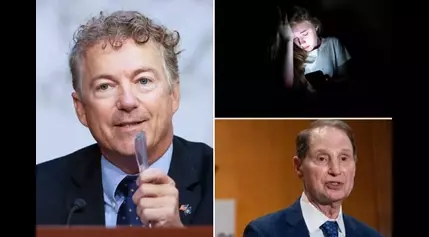Lifestyle

Navigating the Contentious Debate: The Kids Online Safety Act and the Clash of Free Speech
The Kids Online Safety Act (KOSA), a bipartisan effort to protect children from the perils of the digital landscape, has sparked a heated debate in the Senate. While the bill passed with an overwhelming majority, Senator Rand Paul stood firm in his opposition, raising concerns about the potential for government censorship and the vague definitions that could enable the suppression of free speech.Safeguarding the Future: The Contentious Debate Surrounding the Kids Online Safety Act
The Bipartisan Push for Online Safety
The Kids Online Safety Act, introduced by Senators Richard Blumenthal and Marsha Blackburn, aims to establish a "duty of care" for social media platforms to protect minors from harmful content. The bill, which passed the Senate with a resounding 91 votes, is a testament to the bipartisan effort to address the growing concerns surrounding the impact of the internet on young minds.Rand Paul's Dissenting Voice: Fears of Government Censorship
However, Senator Rand Paul (R-KY) stood virtually alone in his opposition to the bill, voicing concerns about the potential for government overreach and the suppression of free speech. Paul argued that the vague definitions of "anxiety-provoking" content could enable the Federal Trade Commission to censor a wide range of speech, including discussions on climate change and other sensitive topics.The Slippery Slope of Censorship: Concerns from Diverse Perspectives
Paul's concerns were echoed by various organizations across the political spectrum. The conservative Students for Life group expressed worries that pro-life content could be censored, while the ACLU raised alarm bells about the potential suppression of pro-choice and LGBTQ+ content. These diverse perspectives highlight the complex and multifaceted nature of the debate surrounding the Kids Online Safety Act.The Paradox of Virtue Signaling: Senators' Reluctance to Oppose the Bill
According to Paul, many of his colleagues shared his concerns about the bill but were reluctant to vote against it, fearing the backlash of being perceived as opposing measures to protect children. He accused his fellow senators of engaging in "virtue signaling" and not thoroughly reading the bill, prioritizing the moral weight of the legislation over its potential consequences.The Unintended Consequences: Potential for Mass Self-Censorship
Paul's primary concern is that the vague standards set forth in the Kids Online Safety Act could lead to widespread self-censorship of political speech online. He argued that content creators and platform owners might feel compelled to limit their expression to avoid potential legal repercussions, ultimately undermining the very principles of free speech that the bill aims to protect.The Search for Balanced Solutions: Rand Paul's Alternative Approach
While Paul acknowledges the importance of protecting children online, he suggests a more targeted approach, such as a minimum age restriction for social media platforms. He believes that this would be a less intrusive solution, allowing parents to maintain control over their children's online activities rather than relying on government intervention.The Ongoing Debate: Navigating the Complexities of Online Safety and Free Speech
As the Kids Online Safety Act moves forward, the debate surrounding its implications for free speech and government overreach will undoubtedly continue. The challenge lies in striking a delicate balance between safeguarding children and preserving the fundamental rights and liberties that underpin a democratic society.

